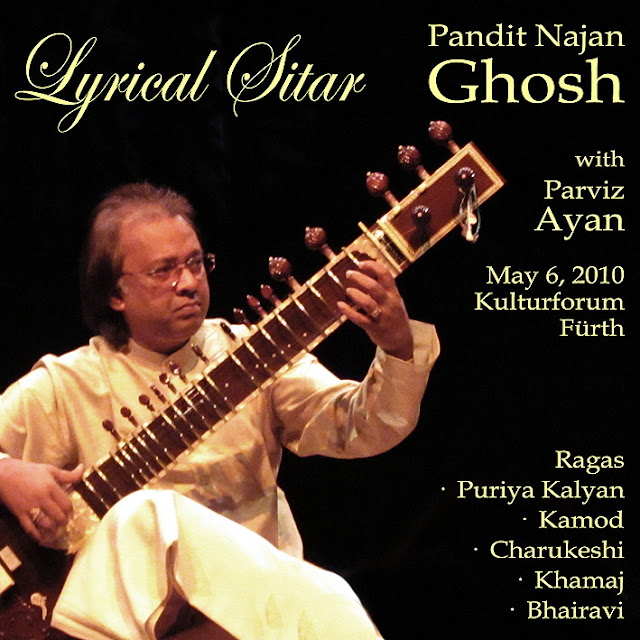Here we have another selection from the virtual pile of live recordings I have acquired slowly over the years. This one was certainly a concert at which I would have liked to have been present. First of all, there were two morning ragas performed in the morning and secondly there was no amplification.
Hindustani musicians often explain that their tradition goes back centuries. Not so often mentioned is how this could possibly be, when there were no microphones, amplifiers, or speakers turned up past the point of distortion. It just doesn't seem possible that there were concerts in the 15th or 16th century!
Aashish Khan has not lived his life without some controversy. I will give him a lot of credit, however, for the courage to perform a morning concert and to not use amplification and processing effects such as compression and artificial reverb.
The taper seemed to have some problems with the batteries on his Edirol R-09HR (a well-known complaint about this recorder -- I use an AC power cord when I am recording LP transfers) so that we only have the first half of the concert.
Half is better than nothing, however, and I am grateful to have it and also to be able to share it with you.
The original info file which accompanied the recordings is below (unedited, as received):
-----------------------------
USTAD AASHISH KHAN & PRABIR MITRA
2015-07-19
Theater Am Faden, Stuttgart, Germany
RAAG BILASHKANI TODI
Lineage: Audience regording with Roland R-09HR > AUDACITY > YOU
Musicians:
Ustad Aashish Khan: sarod
Prabir Mitra: tabla
An almost private concert featuring this morning raga in front of a rather small audience of about 30 people in a very intimate atmosphere in a very (very!) old and dark building - and without any sound system.
The concert started at 11 am and featured two mornig ragas. The second one (I forgot the name of) was even a bit longer and very free - with a very long duell between sarod and tabla!
Well, I was only able to record the first one due to battery problems (as always with the Roland).
The night before they also played there (this time it was sold-out) but I couldn't come.
Complete content of my recording:
0: tuning and announcement 3:28
1: Raag Bilahkani Todi 35:23
-----------------------------------
































